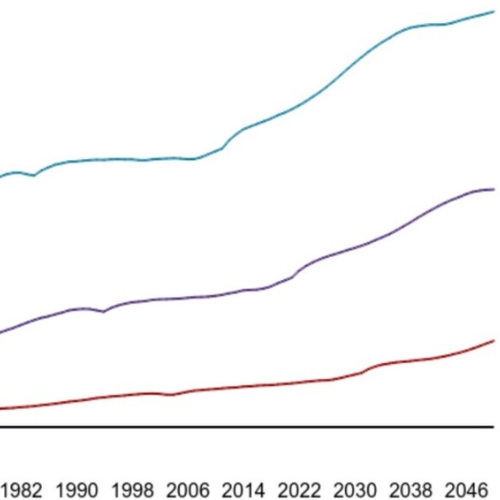The gut microbiome, a bustling community of microorganisms residing in our intestines, has been the subject of intense scientific interest. Researchers have long suspected its role in influencing our overall health and lifespan. A recent study by Shu Chen and colleagues sheds light on the causal relationships between the gut microbiome and human longevity using Mendelian Randomization (MR) analysis.
This groundbreaking research goes beyond correlation, using genetic data to establish causality. Let’s dive into how the gut microbiome influences ageing, healthspan, and longevity.
Gut Microbiome and Longevity
Ageing is a natural process that can be influenced by genetics, environment, and lifestyle. However, the gut microbiome is emerging as a key player. Dysbiosis, an imbalance in gut microbial communities, has been identified as one of the hallmarks of ageing. The study highlights that dysbiosis contributes to age-related diseases such as diabetes, hypertension, and Alzheimer’s.
The researchers analyzed genetic data from multiple large-scale Genome-Wide Association Studies (GWAS) to explore the connections between gut microbiota and longevity traits. These traits included healthspan, lifespan, frailty, and parental longevity.
Microbial Communities That Influence Longevity
1. Beneficial Microbes for Longevity
Certain gut bacteria showed positive associations with longevity:
- Subdoligranulum: This genus was linked to slower biological ageing and reduced frailty. Its anti-inflammatory properties, mediated by short-chain fatty acids, may explain its protective effects.
- Alistipes: Two species, Alistipes senegalensis and Alistipes shahii, were associated with longer lifespans. These microbes may promote cardiovascular and liver health.
- Oscillibacter: This genus supports lipid metabolism and cardiovascular health, contributing to longer life expectancy.
2. Harmful Microbes
Not all gut bacteria are beneficial. Some showed negative associations with longevity:
- Bacteroides massiliensis: This species correlated with shorter lifespans, potentially due to its role in oncogenesis.
- Parasutterella: Linked to metabolic disorders, this bacterium negatively influenced both lifespan and frailty.
Microbial Pathways and Their Role in Ageing
Beyond individual species, the study identified several microbial metabolic pathways that influence longevity:
Positive Pathways:
- Pentose Phosphate Pathway: Supports cellular redox balance and reduces oxidative stress, which are critical for healthy ageing.
- Coenzyme A Biosynthesis: Plays a role in autophagy and longevity by regulating energy metabolism.
- Pyruvate Fermentation to Acetate and Lactate: Enhances stress resistance and promotes metabolic health.
Negative Pathways:
TCA Cycle VIII (Helicobacter): This pathway was consistently associated with shorter lifespans and parental longevity traits, possibly due to its role in gastric carcinogenesis.
Mendelian Randomization Strengthens the Findings
The use of Mendelian Randomization (MR) was a significant strength of this study. MR leverages genetic variations as proxies for modifiable exposures, such as gut microbiota, to establish causality. This approach helps eliminate confounding factors commonly found in observational studies.
The study’s reliance on large-scale GWAS datasets adds robustness. It included data from over a million individuals for longevity traits and nearly 40,000 for gut microbiota. These datasets provided a comprehensive view of the complex relationships between our genes, microbes, and lifespan.
Implications for Healthy Ageing
The findings offer several practical takeaways:
Dietary Interventions:
Increasing dietary fiber could boost beneficial microbes like Subdoligranulum and support pathways such as starch degradation.
Reducing processed sugars may help limit harmful bacteria.
Probiotics and Prebiotics:
Developing probiotics that enhance the abundance of beneficial microbes could promote healthy ageing.
Prebiotic supplements could target pathways like the pentose phosphate pathway to extend lifespan.
Microbiome-Based Therapies:
Future treatments might involve manipulating specific gut bacteria or pathways to delay ageing and reduce frailty.
Future of Microbiome Research
This study opens the door for further exploration of how gut microbes influence ageing. It also highlights the need for more research in diverse populations. Most of the data in this study came from individuals of European descent, leaving gaps in understanding how these findings translate to other ethnicities and regions.
Animal models and longitudinal studies could provide deeper insights into the mechanisms behind these associations. Understanding how gut bacteria interact with our immune system, metabolism, and brain will be crucial for developing personalized therapies.
Challenges and Limitations
While the study provides compelling evidence, it is not without limitations:
- Ethnic Diversity: The study lacked representation from non-European populations.
- Mechanistic Insights: The exact biological mechanisms linking specific microbes to longevity remain unclear.
- Causality vs. Correlation: Although MR strengthens causal claims, further experimental studies are needed to confirm the findings.
Conclusion
The relationship between the gut microbiome and longevity is a fascinating frontier in ageing research. This study by Shu Chen et al. takes us a step closer to understanding how our gut microbes shape our health and lifespan. By identifying specific microbes and pathways, it paves the way for innovative interventions to promote healthy ageing.
As research advances, the prospect of using microbiome-based therapies to delay ageing and combat age-related diseases becomes more realistic. The key to a longer, healthier life may just lie within our gut.
The study is published in the Journal of Translational Medicine. It was led by researchers from Shenzhen Campus of Sun Yat-Sen University.






